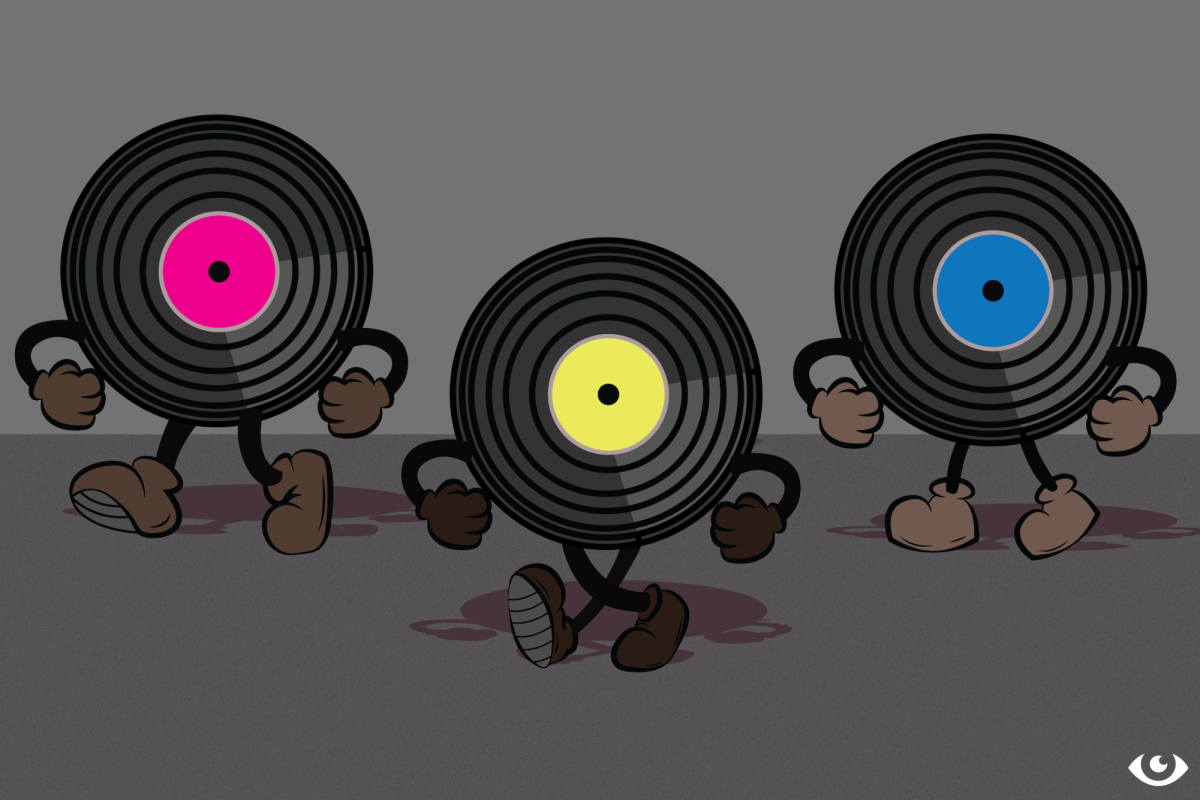The Student Equity and Community Engagement Program of Jefferson County Public Schools (JCPS) and Manual’s drama club hosted their annual Black History Month program, “Black History . . . Our History,” in the auditorium on Friday, February 24.
Ms. Nicole Finley (English), who is the sponsor of the drama club, said that the participants of the event had been preparing since October.
The program featured several Louisville community members and organizations with their own segments, such as a message from Muhammad Ali’s younger brother Rahman Ali, a step team routine by the students of McFerran Elementary School, and a rap performance by Manual alumnus Cortez Hampton (Class of 2007).
Finley said that the theme of the program was to empower and to create a sense of unity in order to achieve progress for causes such as racial equality.
“The theme was art history, but at the same time, it was about uprising,” Finley said. “Everything was about rising up, overcoming obstacles, and not worrying about haters. Don’t hate the player, hate the game: we don’t need to hate each other. We can hate racism, but we don’t have to hate each other.”
Finley and the drama club preserved the theme of art history by including a variety of art forms, ranging from singing performances, dancing routines and instrumental music to short plays, speeches and poetry. The pieces brought the perspectives of both past decades and the present to represent the interconnections of black history and themes of racial oppression.
Quintez Brown (11, HSU) recited Martin Luther King, Jr’s “I Have a Dream” speech to the audience. Brown said that some students recommended him to Ms. Finley because they thought he had a “powerful voice.”
“I am happy that they chose this particular speech because of the parallels it still has in today’s society, and it made me appreciate it way more. The imagery is amazing,” Brown said.
Zakeya Baker (11, J&C) is a member of the Dreamers step team, which performed at the program. She said that stepping is relevant to black history and was a way to show the cultural roots of the black community. Baker also said though that the Dreamers’ performance at the program was different from their typical routines.
“Stepping is more intense at theBlack History Month program because at a pep rally everyone’s pumped up,” Baker said. “They’re yelling and screaming and making you nervous, but at the Black History Month program, they’re quiet and they wait for certain parts to cheer on so you really have to be precise.”
Reflecting on the theme of “Black History … Our History,” Baker said that there were distinguishable ties between black history and the general history of America, and as a result, students and faculty should celebrate Black History Month.
“Black history is just a big part of America [since Africans were] being brought over here from Africa and helping to build the country. Manual is so diverse, and we have so many different cultures. I just feel like each culture should celebrate something that is meant for them, so we should celebrate Black History Month. I think it would just be wrong if we didn’t,” Baker said.
“Especially more so now, events like this are important,” Finley said. “I think we need to open up that dialogue and have a conversation about race. We need to know of our inadequacies so that we can overcome them because there are so many prejudices and stereotypes that are just merely from ignorance. We have to build relationships together in order for us to be able to have those conversations without having an argument and to be receptive.”
The drama club invited the McFerran Elementary School step team to participate in the program in order to provide a creative outlet for younger students in JCPS.
“I wanted to learn something, and I like stepping and wanted to show everybody else,” said Cabiyah Peterson, a fifth-grader at McFerran and one of the steppers in the program.
Dora Nelson, a kindergarten assistant at McFerran and sponsor of the step team, said that the event provided an important message to both the audience and the elementary students.
“No matter how old you are or where you come from, you can always succeed if you work together,” said Nelson.
Desha Horton (12, J&C), one of the attendees at the program, said that it’s important for people of all races to attend events for Black History Month because it can unite the student body in a common understanding.
“I am black, and I really think it’s important to attend these types of events—not just for black people, but for white people, Asian people, and all races. It brings us all together so we all support each other,” Horton said.
“We’re all in this together, and we can overcome anything . . . When you rise back up, you’ve just won. Maybe you’re not a size four, maybe you’re not blonde with blue eyes, maybe you’re not in that clique—everybody rises up. I think we need to look at that because it’s much deeper than race: everybody has issues. I want everyone to know that they can rise up beyond all of that.”
“These programs are important because you can actually feel and experience the beauty of black history,” Brown said. “It’s totally different reading an MLK speech than actually being there and witnessing it. The dances, poetry and other songs are also so beautiful and artistic live.”







